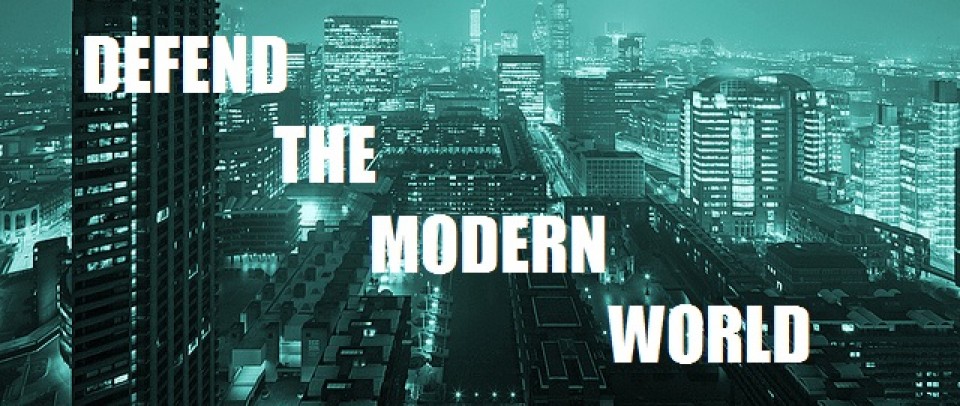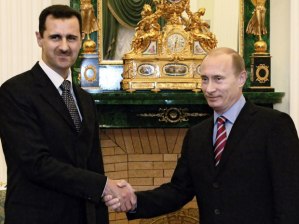Tags
America, American Liberty, anti-Semitism, BBC, Britain First, Caroline Glick, Civilisation, Counter-Jihad, Defend the modern world, Glick, ISIS, Islam, Islamism, Jerusalem, Jerusalem Post, Multiculturalism, Muslims, No to Turkey in the EU, Palestinians, Race and ethnicity in the United States Census, stabbings, stabbings in Israel, Terror, Terrorism, War, war in M.E
One of the more unpleasant consequences of Russia’s involvement in the Middle East is the formation of a formidable military and political coalition along Israel’s northern border. As I write, Hezbollah, Assad’s Syria and Iran are establishing a united force in southern Syria, protected and armed by the Russian military, and with tight links to the New Iraq.
This coalition is unlike any enemy Israel has faced before. It is not a force that Israel can simply bomb out of existence (like Hamas in Gaza, or – formerly – Hezbollah in Lebanon). Moscow will not allow that. What’s more, in combined strength the new Anti-Israel Northern Border Coalition (from here-on AINBC) is perfectly capable of defending itself. Though his country itself has been burnt out, Basher Al-Assad’s huge military still exists and is now dangerously concentrated in the south of the country. Hezbollah is the most effective terrorist force Israel has ever had to contend with. And Iran, unleashed by Obama’s utopian ‘nuclear deal’, now awaits a payment of 100 billion dollars in previously frozen funds; enough to purchase an army strong enough to dominate the region. To have this monster in the most contested area of the Middle East may prove to be a game-changer.
How might Israel get out of this? No commentary (in Israel or the West) as yet seems to offer an answer. Nuclear weapons (Israel is estimated to have over 200) are practically useless because of Moscow’s involvement. A conventional bombing campaign would risk Russian and Iranian reprisals. The Syrian army, so concentrated in the area adjacent to Israel, forbids a ground invasion. What can be done? At the moment, precious little.
AINBC doesn’t have a single policy yet, but when it develops one, several things will almost certainly be on the agenda. Syria will want the Golan Heights back. Hezbollah will want Sheba Farms back. The Palestinians, emboldened by a sympathetic super-power in the neighbourhood, will demand an acceleration of the peace process.
Indeed, who can say with certainty that the current Palestinian hate-crime epidemic is not related to a new feeling of political invulnerability?
In case you’re unaware of this epidemic (not impossible given the shameful lack of media coverage in the West), you should know that Palestinian criminals in the Greater Jerusalem area are stabbing people with kitchen knives simply for being Jewish. Dozens of Israelis have now been killed or injured, every one of them completely innocent of any wrongdoing. The IDF military, designed for much larger and very different operations, is overwhelmed, along with Israel’s police force, health sector and local funeral services. No end to the violence has yet come into view.
Given these mounting troubles, it must be conceded that Israeli leaders have been far too serene about the prospects for regional and internal peace in recent years. The surrounding states (or ‘ring states’ as some Israeli strategists refer to them) – with the pleasant exception of Jordan – are demographically booming, developing in arms, and degenerating in attitudes.
If the State of Israel is to survive (in the very long term), its leaders must regain their previous realism. They must confront AINBC while it is still in its larval stage. If that develops to its fullest potential, and if it allies itself (which it surely will) with the most intolerant factions of the Palestinian movement, Israel may find itself facing the greatest existential risk in its modern history.
D, LDN


If they state of Israel is to survive, Jews should stop shitting on white people in the USA and Europe.
LikeLike
Can you elaborate?
LikeLike
LikeLike
I don’t believe she represents the majority of Jews in her view of multiculturalism.
LikeLike
Show me all the Jews who denounce her and stand against European genocide.
LikeLike
Have you read Mark Steyn’s books?
LikeLike
Have you read Kevin Macdonald?
LikeLike
I have one of his books (Separation and its Discontents) somewhere. I haven’t really read much of it. Perhaps I’ll do so and write a review. I know the gist of his theories and I’m not convinced.
LikeLike
Well, so many people are convinced that it doesn’t really matter if you are convinced or not.
LikeLike
That may be so, but I will find out for myself.
LikeLike
I imagine he is referring to jewish, left-wing proponents of multiculturalism, and sadly, as many narrow-minded/somewhat covertly anti-semitic people are guilty of today, not making that distinction, but instead, laying the blame on the shoulers of all jews, with this all too familiar and ignorant, sweeping generalisation.
LikeLike
It’s worrying how many people subscribe to this type of thinking. As you say, it’s a gross oversimplification of the reality.
LikeLike
I don’t know of a race of people more politically divided than the Jews. It’s impossible to speak of a ‘Jewish position’ on one specific issue.
LikeLike
It’s a popular joke in Israel that if you put 3 Jews in a room, there soon will exist 4 ideologically different political parties!
LikeLike
Indeed.
LikeLike
Always interesting to read you. But I wonder if Russia is that keen on a long term alliance with a load of ideologically Muslim states.
LikeLike
Always interesting to read you.But I wonder if Russia is that interested in a long term relationship with ideologically Muslim states.
LikeLike
Russia is increasingly desperate. The economy is collapsing (due to lowering oil prices). NATO is advancing ever closer to their Western border (robbing them of their historic allies). Putin is unpredictable.
There is also the geostrategic factor. Russia is intervening in Syria to protect the Russian navy’s only Mediterranean base (at Latakia). This implies a long-term alliance with Syria (since Syria hosts that base).
LikeLike
Iran, Assad’s Syria and Hezbollah are very close to each other. Southern Syria is very useful to Iran especially, as it gives them an operational border with Israel.
LikeLike
A post that is thoughtful and troubling in equal measure. The future for Israel doesn’t look too good, the stakes are very high for them. My worry though is that the West, including the UK, will be dragged into war with Russia…sparked off by some incident, an air clash in Turkish airspace for example. As you say, Putin is unpredictable.
LikeLike
Yes, a war with Russia would be devastating. However there’s little we can do to diffuse tensions. Turkey has its own policy in Syria and may clash with Russia whether we like it or not. Worrying times.
LikeLike